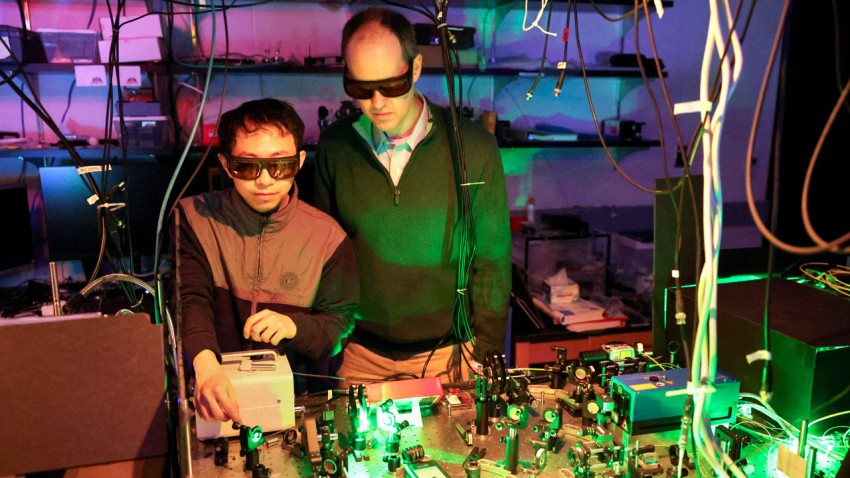Expanding digital operations from a world of 0s and 1s to one that leverages the probabilistic states of quantum mechanics, quantum computing promises to transform the way we live by enabling advancements in drug discovery, climate modeling, cryptography and artificial intelligence. Cornell engineers, in collaboration with top scientists and engineers from universities, national laboratories, and industry, are at the forefront of advancing quantum science and technology, driving innovation and workforce development.
-
26
Cornell Engineering professor direct research labs studying quantum science and engineering.
-
.01
Degrees Kelvin is how cold Cornell’s cryogenic fridge operates to stabilize quantum states in qubits.
-
11
Academic partners, including Cornell Engineering, in the Q-NEXT quantum science consortium supported by the U.S. Department of Energy.
-
6
Degree programs with substantial content options in quantum science and engineering offered at Cornell.
Latest News
-
![Jialun Luo and Greg Fuchs]()
Semiconductor defects could boost quantum technology
Researchers went searching for a quantum spin in the popular semiconductor gallium nitride and found it, surprisingly, in two distinct species of defect.
-
AI, quantum drive discovery of peptides for microplastic cleanup
A research team led by Cornell has demonstrated how quantum computing and artificial intelligence can be used to design new peptides capable of capturing microplastics that pose serious risks to ecosystems and human health.
-
Kourkoutis’ cryo-imaging continues to drive quantum discoveries
A team led by Judy Cha collaborated with the late Lena Kourkoutis to use cryo-electron imaging to study how defects in the microstructure of the nanomaterial tantalum disulfide affects its properties.
Select Centers and Facilities
Select Programs
- Minor
- B.S.
- M.Eng.On Campus
- M.Eng.Distance Learning
- M.S.
- Ph.D.
-
Engineering Physics
Combines engineering and physics to solve high-tech problems. Ideal for those interested in applying physics principles to developing innovative technologies.
-
Electrical and Computer Engineering
Focuses on developing electrical systems, from circuits to computers. Great for those interested in hardware, software, and advancing technology.
-
Materials Science and Engineering
Studies the properties of materials and their applications. Ideal for those excited about developing new materials for industries like electronics, energy, and healthcare.

